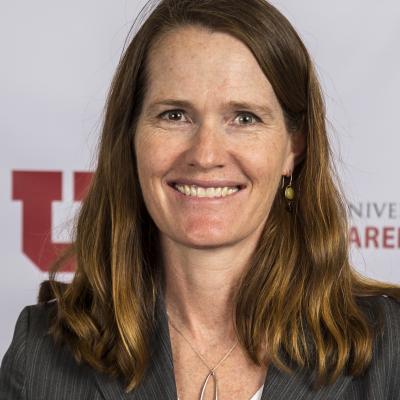Amy McMullen Sibul, MS
Amy talks about her background in conservation biology and education. She walks us through her transition to academia from her previous career and the struggles she faced with imposter syndrome. In the clip of her interview below, Amy talks about the many roles she served throughout her early career life with multiple institutes and how they each impacted her mentality and/or solidified her abilities and positions. Amy also discusses her choice to not pursue a Ph.D. because it did not fall in line with what she had envisioned for herself.
"However, when I started at the University of Utah... massive imposter syndrome. I don't have a Ph.D. I constantly have to remind myself, I never wanted a Ph.D., that was not my path; it was never something I really seriously contemplated because I found my space in the applied world, that's where I felt my skill set was best utilized. And I'm, you know, I'm constantly called Professor Sibul and Dr. Amy and I'm constantly saying I'm not a doctor, I'm not a professor."
Full transcript excerpt can be found at the bottom of the page.
"And while I work in an institution that takes staff equity seriously, significant structural inequalities remain ingrained in academia – both locally and globally – which make so many of us feel like trespassers." Caroline Blyth
The National Institutes of Health released a 2020 study stating that anywhere from 9%-82% of individuals experience imposter syndrome. This most likely occurs for the first few weeks of a new job or joining a new institute, however some people experience imposter syndrome throughout their entire career life.
Although some people may have similar experiences, it is true that imposter syndrome affects everybody differently, depending on several factors. Different career paths and different genders may play a role, as well as different institutions' guidelines for career advancement. In Amy's case, her imposter syndrome was largely due to her transition into academia. Even in her early college life, she never had a desire to pursue a Ph.D. But throughout her career, she somehow found herself in a position where she was drawn to the field. And although it was never a part of her plan she grew to love that position.
And although her experience with imposter syndrome caused her to question her intellectual capabilites in the beginning, she overcame them. She had the skill, she met the qualifications, and by constantly reminding herself of her worthiness she dealt with her imposter syndrome.
"If, when you attend that first faculty meeting, or address that first graduate course, you finding yourself wondering, "Do I belong here?" don’t worry about it — if you’re there, then belong there. It really is that simple." Nate Kreute
When it comes to the specific qualifications an individual must meet in order to obtain a faculty position in a university and then advance within it, there is a great deal of stress and tension. The battle of setting up a course routine is strenuous enough, so the allotted pressure of a new position at a new institute is an extra stress. It does not come as a surprise that someone in that position would experience imposter syndrome. You are constantly surrounded by people who have been with the institute from the beginning of their careers, that have mastered their craft. The intimidation is real.
Along with that comes different academic appointments that place faculty into a ranking system. On the high end you have those individuals that have been teaching for years, that have Ph.D.s, the longtime instructors. And on the low end we have new faculty and people who have not pursued a Ph.D.
"And there's a hierarchy, there's a caste system at the university and it's more prevalent in certain departments than others. It's prevalent in the college of science: tenure track, career line faculty, career line faculty that have master's degrees as their highest degree. So I'm in this low caste and I find myself constantly feeling I have to justify my existence to myself as much as to anyone else."
It becomes easy to compare yourself to someone in a higher caste and belittle yourself. That desire to be like someone else over the fact that they are ranked higher, have more research and influence. You got the job, you did the work, and as hard as it seems while experienceing the doubt, you are deserving. This is where repetition seems to come into play for most people who experience imposter syndrome. The persistent reminder to the self that "I am worthy," to the point where it is embedded in one's head.
Page written and researched by Ronata Ibrahim.
Later edited by Pamalatera C. Fenn


